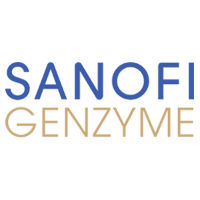Abstract:Endosialin/TEM1/CD248 is a cell surface protein expressed at high levels by the malignant cells of about 50% of sarcomas and neuroblastomas. The antibody–drug conjugate (ADC) anti-endosialin-MC-VC-PABC-MMAE was selectively cytotoxic to endosialin-positive cells in vitro and achieved profound and durable antitumor efficacy in preclinical human tumor xenograft models of endosialin-positive disease. MC-VC-PABC-MMAE was conjugated with anti-endosialin with 3–4 MMAE molecules per ADC. The anti-endosialin-MC-VC-PABC-MMAE conjugate was tested for activity in four human cell lines with varied endosialin levels. The HT-1080 fibrosarcoma cells do not express endosialin, A-673 Ewing sarcoma cells and SK-N-AS neuroblastoma cells are moderate expressers of endosialin, and SJSA-1 osteosarcoma cells express very high levels of endosialin. To determine whether endosialin expression was maintained in vivo, A-673 Ewing sarcoma, SK-N-AS neuroblastoma, and SJSA-1 osteosarcoma cells were grown as xenograft tumors in nude mice. The SK-N-AS neuroblastoma and the A-673 Ewing sarcoma lines were selected for in vivo efficacy testing of the anti-endosialin-MC-VC-PABC-MMAE conjugate. The treatment groups included a vehicle control, unconjugated anti-endosialin, an admix control consisting of anti-endosialin and a dose of free MMAE equivalent to the dose administered as the ADC, and the anti-endosialin-MC-VC-PABC-MMAE conjugate. The unconjugated anti-endosialin had no antitumor activity and resulted in similar tumor growth as the vehicle control. The admix control produced a modest tumor growth delay. Administration of the anti-endosialin-MC-VC-PABC-MMAE conjugate resulted in a marked prolonged tumor response of both xenograts. These proof-of-concept results break new ground and open a promising drug discovery approach to these rare and neglected tumors. Mol Cancer Ther; 14(9); 2081–9. ©2015 AACR.








